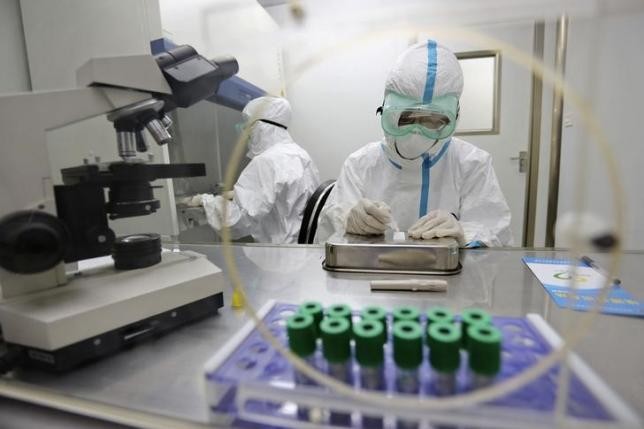The growing number of engineers in China will help the country advance in innovation, according to a new book by Max von Zedtwitz.
According to the book, the sheer number of science and engineering graduates from Chinese universities could help speed up innovation in the country.
von Zedtwitz, managing director of the Center for Global R&D Management and Innovation (Glorad), a research and development think tank, said that breakthroughs in science can now be possible in just a matter of decade.
"Innovation is to some extent a numbers game. If you just have one idea per 1,000 people, then a country that has a 1.4 billion population is going to have an advantage over anyone else," von Zedtwitz said.
China Daily reported that von Zedtwitz was in Beijing to promote his new book, "Created in China: How China Is Becoming a Global Innovator." The book was released in January and was co-written with Georges Haour, a professor of technology and innovation management at the IMD Business School in Switzerland.
According to the report, the Swiss author's think tank is partly based in Shanghai. He previously worked as associate professor of innovation management at Tsinghua University in Beijing.
"What we wanted to get across in the book was the impact of all the agents and actors involved in innovation in China, including the government, the education system and the companies," the 46-year-old author said.
"Outside of China, all the focus is on the big companies like Huawei and Alibaba that are global leaders, but what is not always seen is the role smaller companies are now playing in innovation," he added.
von Zedtwitz said in his book that China plans to raise the GDP proportion it devotes to innovation from 0.5 percent in 1995 to 2.5 percent by 2020, which would also require the need for 3.7 million scientists working in research and development.
The report said that although China has the same figure as Europe, there was a 17-percent increase in patents in the country since 2005 and the applications have reached 2 million in 2014, thrice as many as that of the U.S.
Compared with 5 percent in the U.S., about 31 percent of undergraduate degrees in China are in engineering and the country aims to have 200 million college graduates by 2030.
"There is definitely a race going on, and I don't think the West has actually caught up with the severity of that race," von Zedtwitz said. "China is opening up a new international front in the area of innovation. Because people matter so much in the race, the more people you have, the better you are at it."
The Swiss author also believes that China could also find a cure for cancer.
"Cancer is a big issue in China because of fears of the impact of the environment on people's health. Because of the size of the country's population, many more people are going to be dying of cancer in China than anywhere else," the author noted. "There are also going to be a lot of resources devoted in China to diseases that affect older people, such as Alzheimer's, Parkinson's disease and cardiovascular illnesses, because China's population is aging fast. I think medical technology will be a cutting-edge area for China."
von Zedtwitz added that it often takes decades for scientific development to happen, hence it would be wrong to expect instant breakthroughs. He cited the accomplishment of Tu Youyou, the Chinese pharmacist who received the Nobel Prize in physiology and medicine last year for developing the anti-malarial drug artemisinin. He said Tu's work began in the late 1960s, but the drug only became available in the middle of the last decade.
"A breakthrough discovery generally takes about 30 years, certainly in terms of bringing it to the market. So what we are doing now in terms of research and development might not have any impact until 2046," he said.
He added that China could send an astronaut on the moon by 2023.
"The purpose of going to the moon now is not the achievement itself but the commercial aspects of space exploration. It is not about planting a flag but about having permanently manned stations on the moon," he said.
von Zedtwitz was born in Switzerland, where he studied computer science at ETH Zurich, a leading technological institution. In the mid-1990s, he worked at a research institute in Kyoto, Japan. He earned his doctorate from University of St. Gallen in Switzerland and moved to Harvard as a postdoctoral fellow.



























